

Ron Rash is Burning Bright. 58631. From England, A Belated Gift: Elizabeth Taylor’s Fiction. By James Naiden She lived for just over sixty-three years (1912-1975), her last three decades as an active writer who published fifteen books in her lifetime, one posthumously.
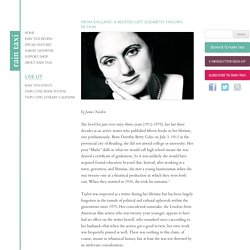
Born Dorothy Betty Coles on July 3, 1912 in the provincial city of Reading, she did not attend college or university. Her poor “Maths” skills in what we would call high school meant she was denied a certificate of graduation. So it was unlikely she would have acquired formal education beyond that. Instead, after working as a tutor, governess, and librarian, she met a young businessman when she was twenty-one at a theatrical production in which they were both cast. Taylor was respected as a writer during her lifetime but has been largely forgotten in the tumult of political and cultural upheavals within the generations since 1975. The Other Elizabeth Taylor. The English author Elizabeth Taylor (1912–1975) is best known for not being better known.
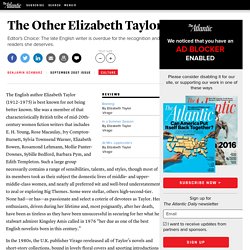
She was a member of that characteristically British tribe of mid-20th-century women fiction writers that includes E. H. Short story: 'The Blush' by Elizabeth Taylor. El-ladies: mature woman amateur sex. Mayo writer Colin Barrett wins Frank O’Connor award with debut collection. An Irish writer has held off a strong challenge from four Americans and a Scot to win the 2014 Frank O’Connor International Short Story Award.
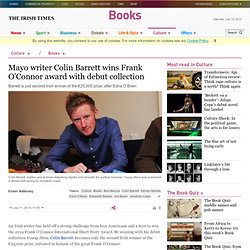
By winning with his debut collection Young Skins, Colin Barrett becomes only the second Irish winner of the €25,000 prize, initiated in honour of the great Frank O’Connor. Barrett, who was born in 1982 and grew up in Co Mayo, had not only talent, but also the good fortune to catch the attention of one of emerging Irish fiction’s finest mentors Declan Meade, editor of the Stinging Fly magazine, which first published Barrett in 2009. A little less conversation. "We made it!

" Lorna cried exultantly. The 10 Types of Writers' Block (and How to Overcome Them) Philip Pullman calls time on the present tense. Last week, the Daily Telegraph printed a story headlined "Philip Pullman and Philip Hensher criticise Booker prize for including present-tense novels".
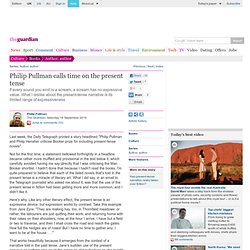
Not for the first time, a statement bellowed forthrightly in a headline became rather more muffled and provisional in the text below it, which carefully avoided having me say directly that I was criticising the Man Booker shortlist. I hadn't done that because I hadn't read the books. I'm quite prepared to believe that each of the listed novels that's told in the present tense is a miracle of literary art.
Opinion: Philip Hensher. 9 Easily Preventable Mistakes Writers Make with Dialogue. Dialogue has been my own writing nemesis and I continue to find it a challenge, although each day of writing seems to improve it slightly!
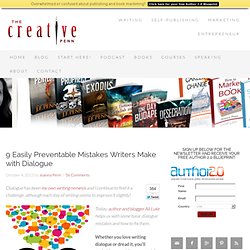
Today, author and blogger Ali Luke helps us with some basic dialogue mistakes and how to fix them. Whether you love writing dialogue or dread it, you’ll probably agree it’s an essential part of fiction. Unless you’re writing an experimental short story, you’re going to need to include some dialogue – and it needs to be done just as well as the rest of your writing. Dialogue has many roles in your story. It can: Reveal characterAdvance the plotMake characters seem realGive a sense of action unfolding Dialogue is also easy and fast to read.
It breaks up the page, adding white space and making your story look more attractive. Unfortunately, dialogue is also easy to get wrong. This Itch of Writing: Psychic Distance: what it is and how to use it. Psychic Distance is a concept which John Gardner explores in his book The Art of Fiction, and I think it's absolutely crucial, not difficult to understand, and not nearly talked about enough.
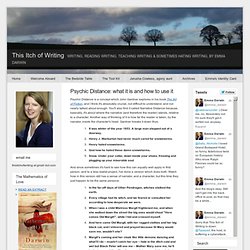
You'll also find it called Narrative Distance because, basically, it's about where the narrative (and therefore the reader) stands, relative to a character. Another way of thinking of it is how far the reader is taken, by the narrator, inside the character's head. Set up Your Story in the First Paragraphs. By Jodie Renner, editor, author, speaker I receive several first chapters (and synopses) every week as submissions for possible editing, and I always read the first page. Some are clear and compelling and make me want to read more. But too often, two main problems emerge: Either the author spends too much time revving his engine with description or backstory before we even care (boring); or we’re plunged right into the story but have no idea where we are or what’s going on (confusing).
Place & Location. Location – notes Much as a place can elicit the greatest mystery and contemplation, or even dread and anxiety, place prompts story-telling.

Location can be the empty white space that demands meaning, and narrative will provide that: in other words location is an essential starting point or anchor for the narrative’s eventual form, structure, and plot. Place can be an index of the inner soul.
Revision. Creating Characters. Writers and Mentors. Plotting. The Writer's Life. Writing Style.